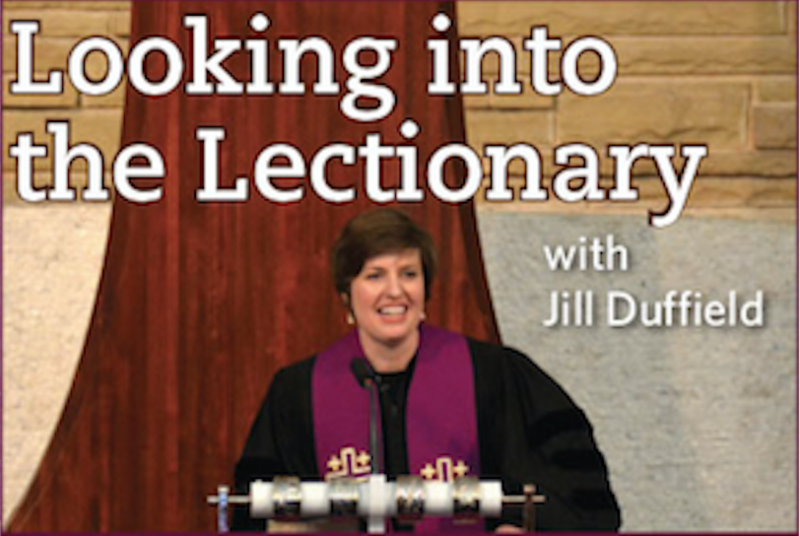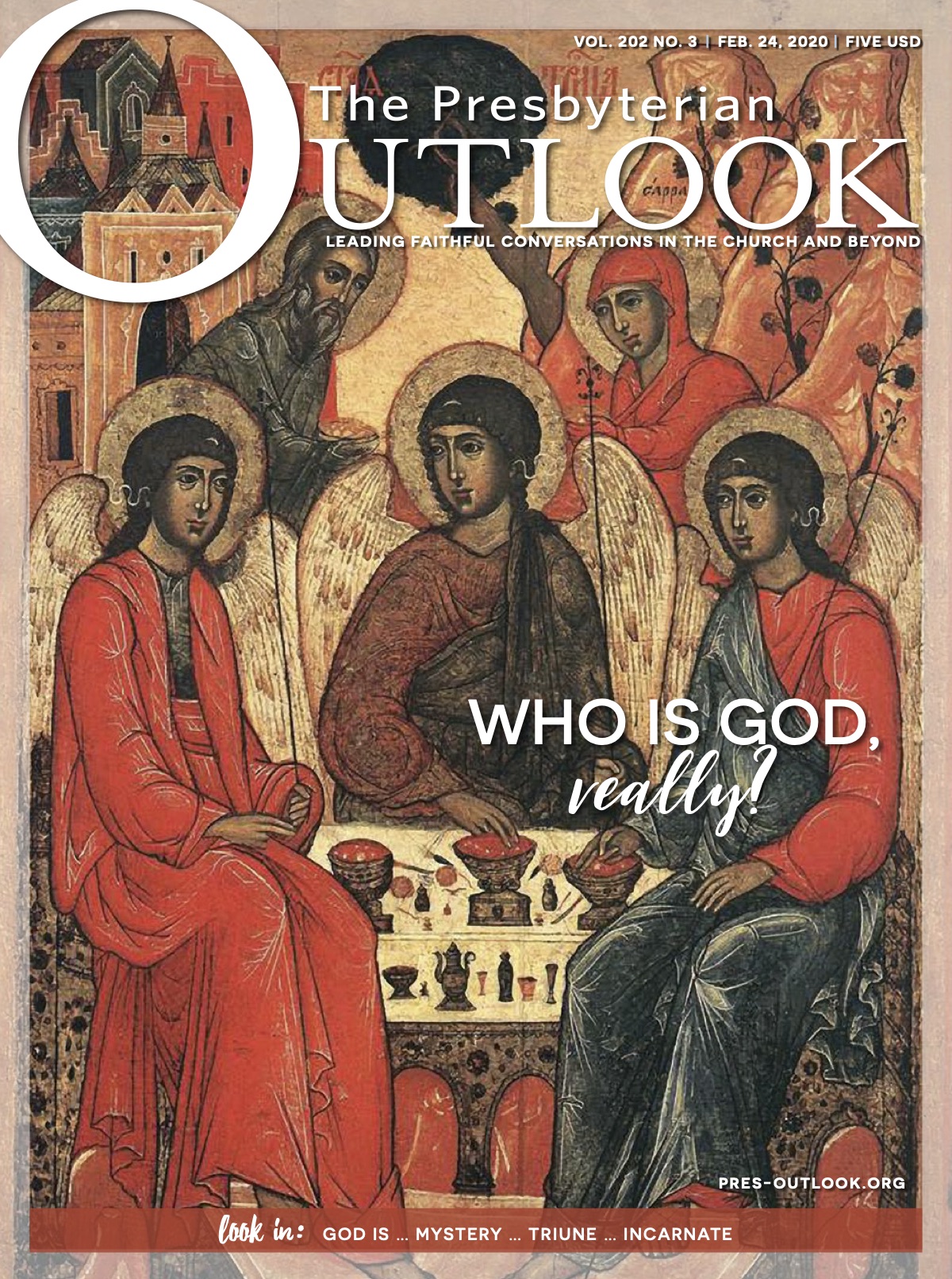Given the likely temperature, the animosity between Jews and Samaritans, the culturally inappropriate nature of a man talking alone with a woman, this lengthy exchange stands out. All of the barriers to their encounter appear immaterial to Jesus. The disciples take notice and their shock is documented upon their return to this historic well. The woman, she, too, knows this conversation is not typical; is, in fact, extraordinary - not only because of its content and Jesus' knowledge of her life, but because of all the reasons they should have nothing to do with one another. She lists the well-known, long-standing, insurmountable difference between them: How is it that a Jew asks me, a Samaritan woman for a drink? The writer of John wants to make sure readers know this is not allowed, adding, "For Jews have no dealings with Samaritans." (That word "dealings" is found only in this verse in all of the New Testament and can be translated as "associate with," emphasizing just how much these two should not be sharing space.) She goes on to note that her people worship on this mountain, but Jews worship in Jerusalem. Their differences are many and profound. Gender, ethnicity, worship practices, religion - all of these loaded categories conspire to prevent Jesus and this woman from being in conversation, let alone the same community.
Yet, she says "our father Jacob" and "our fathers," as if she and this Jewish prophet are of the same family. How is it that those with the same father can be so divided and hostile to one another? How is it that all the other labels and characteristics have trumped their kinship and rendered them enemies rather than siblings?
Who can be leaders in the church? What form of baptism is legitimate? Who can receive communion? On what day do we hold worship? Who will we sit beside? Eat with? Marry? Which candidate or political party represents a faithful choice? What's your stance on this issue or that one, and how can you possibly defend it? The reasons we separate and estrange ourselves from our siblings seem endless and perpetual.
What keeps us apart and what do Jesus' actions at Jacob's well tell us about God's will for bringing us together?
Driving to church yesterday I saw a man standing on the corner, waving a large handmade sign over his head. Scrawled in red spray paint was the following: "Illegals take Americans' jobs." I wondered what those jobs might be in Charlottesville, Virginia. I wondered more at the choice of the word "illegals," as if human beings could ever be illegal. Clearly, the man with the sign had categories, labels, a clear sense of divisions between people. I suspect he would be scandalized by Jesus' exchange with the Samaritan woman at the well, a conversation that bridged divides and rendered all our cultural categories inapplicable. Jesus offers living water to the thirsty, the Samaritan women who come to the well in the heat of the day, those crossing deserts without shelter or provisions.
Shocking as it may be to us, Jesus' mission field includes Samaria, and no one there is off limits for his transformative love, his living water, or his salvation.
This morning I listened to
a news story on the increased turmoil in Syria and the growing crisis as refugees and migrants seek relief. Turkey is no longer stopping migrants from crossing into Europe even as European borders remain closed to people desperate for better lives. The story's descriptor reads, "In a move to get Europe's attention, Turkey is busing migrants to the border crossing with Greece, but many say Greek officials are just taking their belongings and sending them back." The reporter at the end of the story said that the Turkish government believes the only way to get the European Union's attention it to "threaten them with human beings."
Threaten them with human beings. Not armies with weapons, but with human beings desperate for shelter, for food, for water. Threaten to cross cultural and religious boundaries. Threaten to breach national borders. Threaten to make us all connected to each other. Threaten to call us to be our brothers' and sisters' keeper and sibling.
All over the globe, right now, Samaritan women are making their way to the well in the heat of the day. Their lives, as
David Lose says of the Samaritan woman, "may well be tragic rather than scandalous."
They are attempting to survive in hostile deserts under threatening circumstances. They ache for relief, for water that does not run out or require endless trips to the well and back. They know most will see them as less than and as other, undeserving and a problem. But Jesus sees them differently. Jesus knows everything about them, their suffering and hardship, their humanity and their worth, their hopes and their desperation. Jesus refuses to capitulate to the limits of our labels and the pettiness of our constructed differences. Jesus, the Messiah, comes in the name of our Father, the Father, and tells us what matters, what truly matters, what solely matters is that we accept the gift of his living water and worship our Father, the Father, in spirit and in truth.
No wonder the woman at the well left her precious water jar and ran into town to tell others of the One who saw her, telling them they needed to come and see the One who knew everything about her and loved her not in spite of all he knew but because of it.
Jesus is not threatened by Samaritan women or any other human being. He sees them and invites them to see him, too. He proclaims all our proximate, primal, self-protective difference null and void in the face of our kinship in and through the Father. He enables us to leave behind the burdens that keep us desperate for respite and replace them with living water that flows without fail and without end. He makes of us missionaries, evangelists, those freed to speak and unable to keep silent in the face of such saving grace. And yet, disciples then and now are utterly amazed by and disbelieving of Jesus' ministry of radical reconciliation. Disciples then and now focus on the mundane, worry about scarcity and fail to see the transformative work of God even when the opportunities and the mandate to participate in it are right in front of them.
Would that we, like the Samaritan woman, had eyes to see and the courage to tell others of Jesus' expansive, indeed inexhaustible, love that saves us, sets us free, casts out fear and makes of us one human family.
This week:
- Read this story from John slowly. Notice the progression of understanding on the part of the Samaritan woman. How does she come to see and understand who Jesus is? How do we?
- What are the cultural, religious, racial barriers in our church? Community? How does Jesus transcend those divisions? How, then, do we?
- Be mindful of water this week. Every time you encounter water think about Jesus' statement that he is the living water. What difference does this awareness make in how you go about your daily activities?
- The Samaritan woman at the well becomes an evangelist. When and how have you told others about Jesus? How was it received?
- The Samaritan woman encountered Jesus going about her ordinary, daily work and routine. When have we unexpectedly encountered Jesus in the midst of the ordinary? How did we recognize him?
- Look at other passages in John where the phrase "come and see" is used, John 1:38-39 and John 1:46. How do these passages inform your understanding of John 4? Of the Samaritan woman?





No comments:
Post a Comment